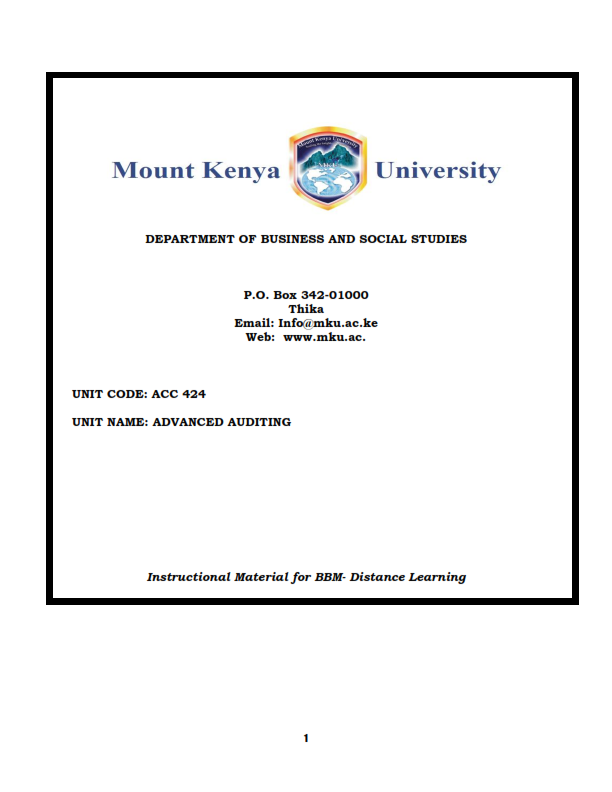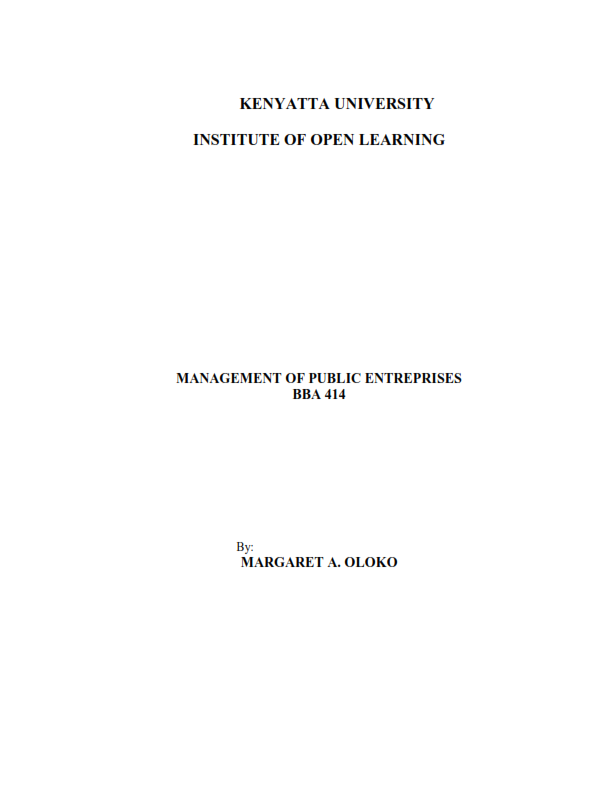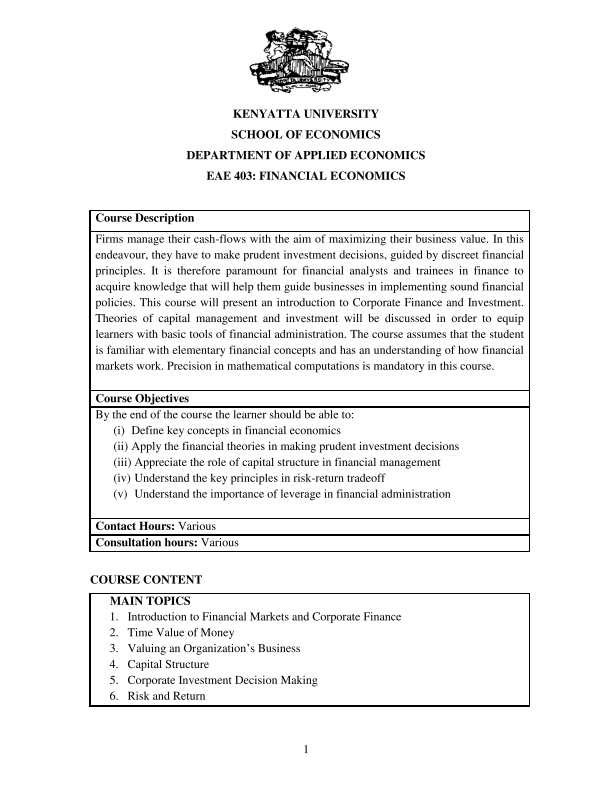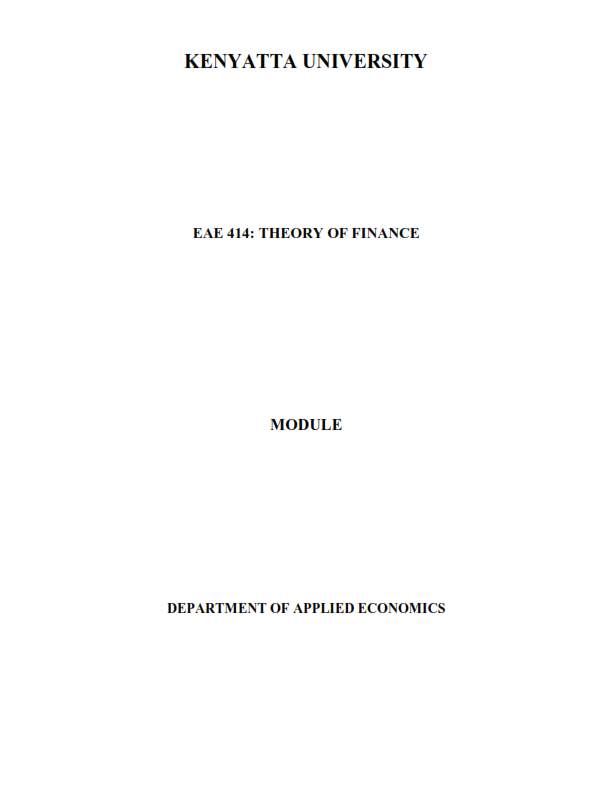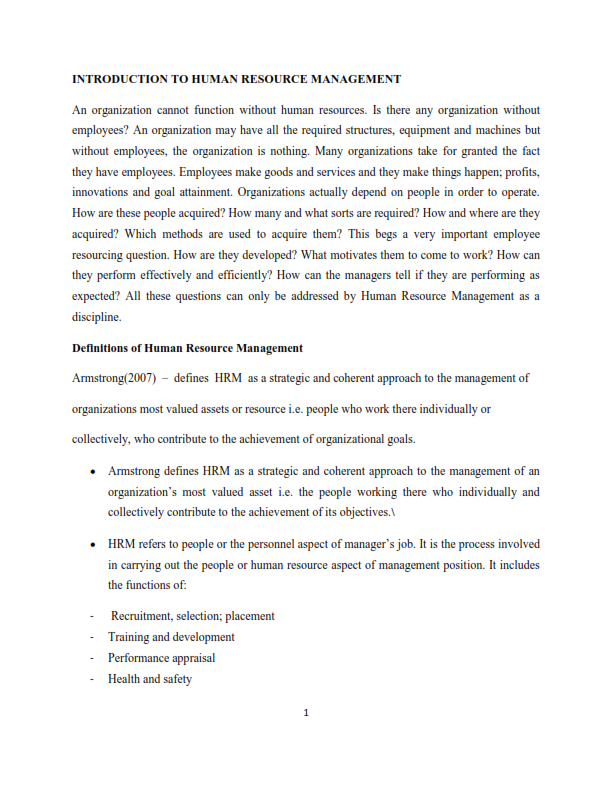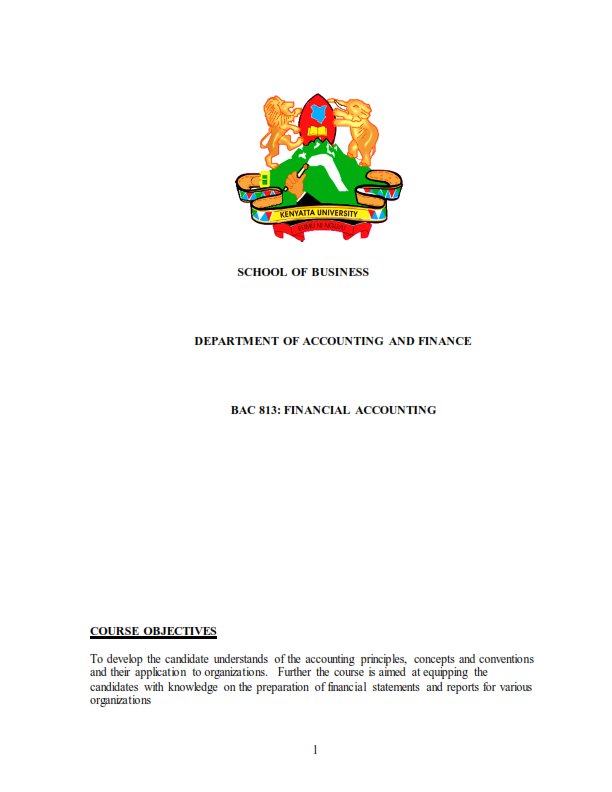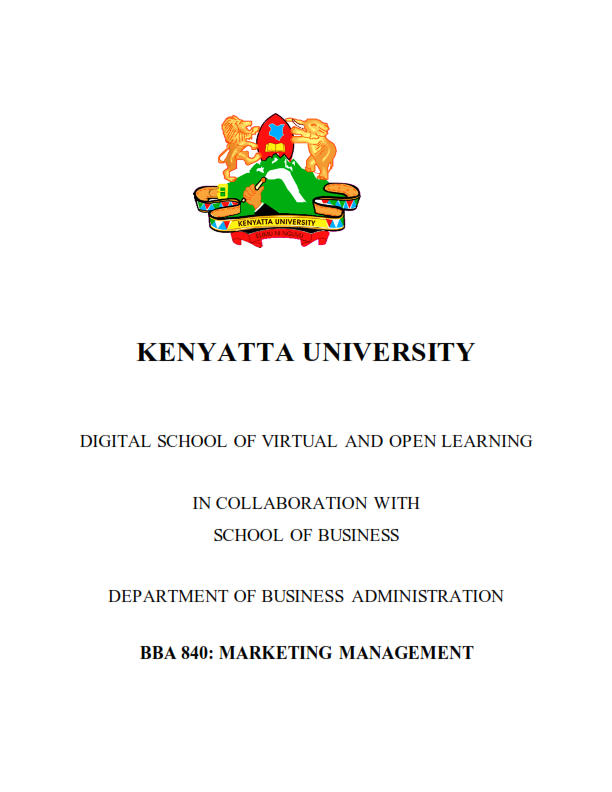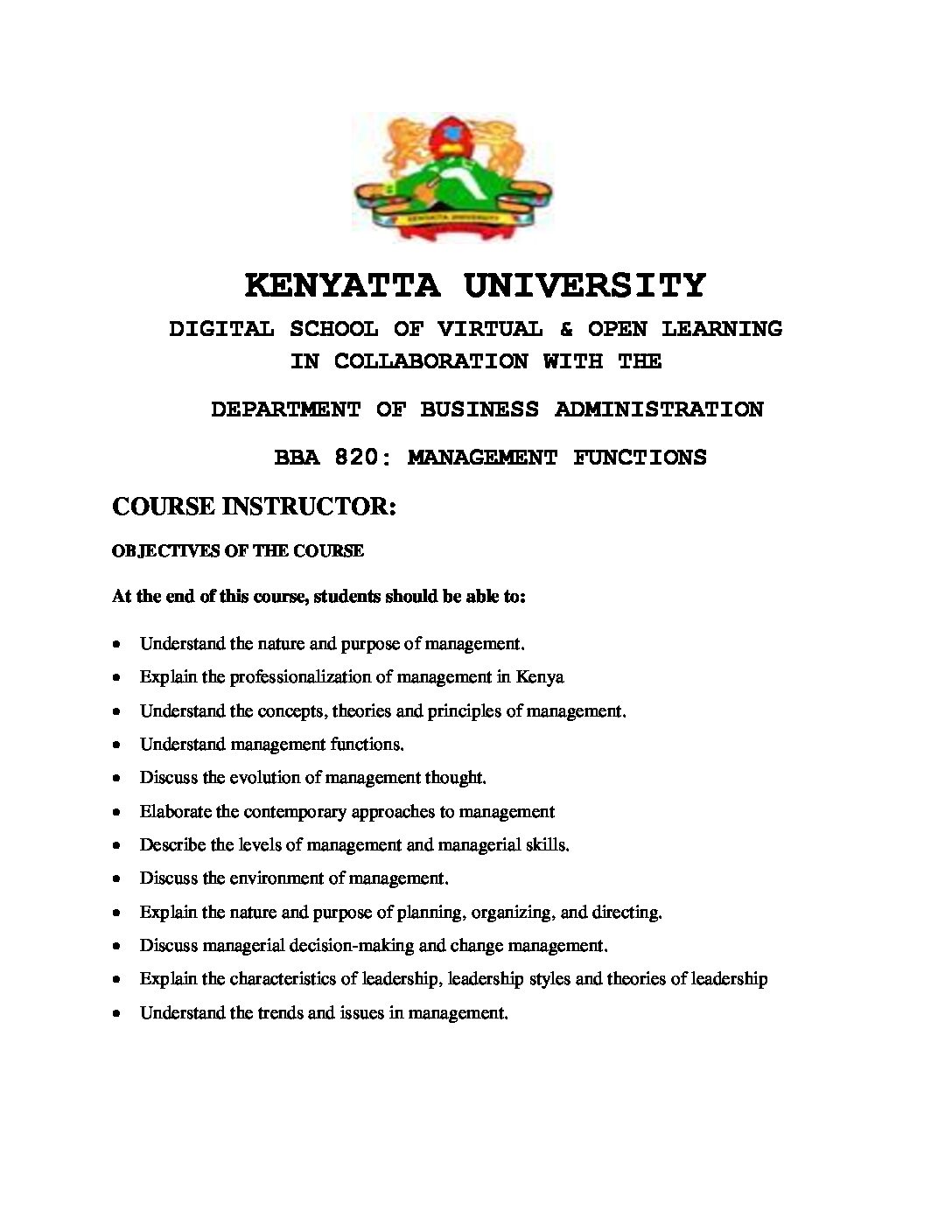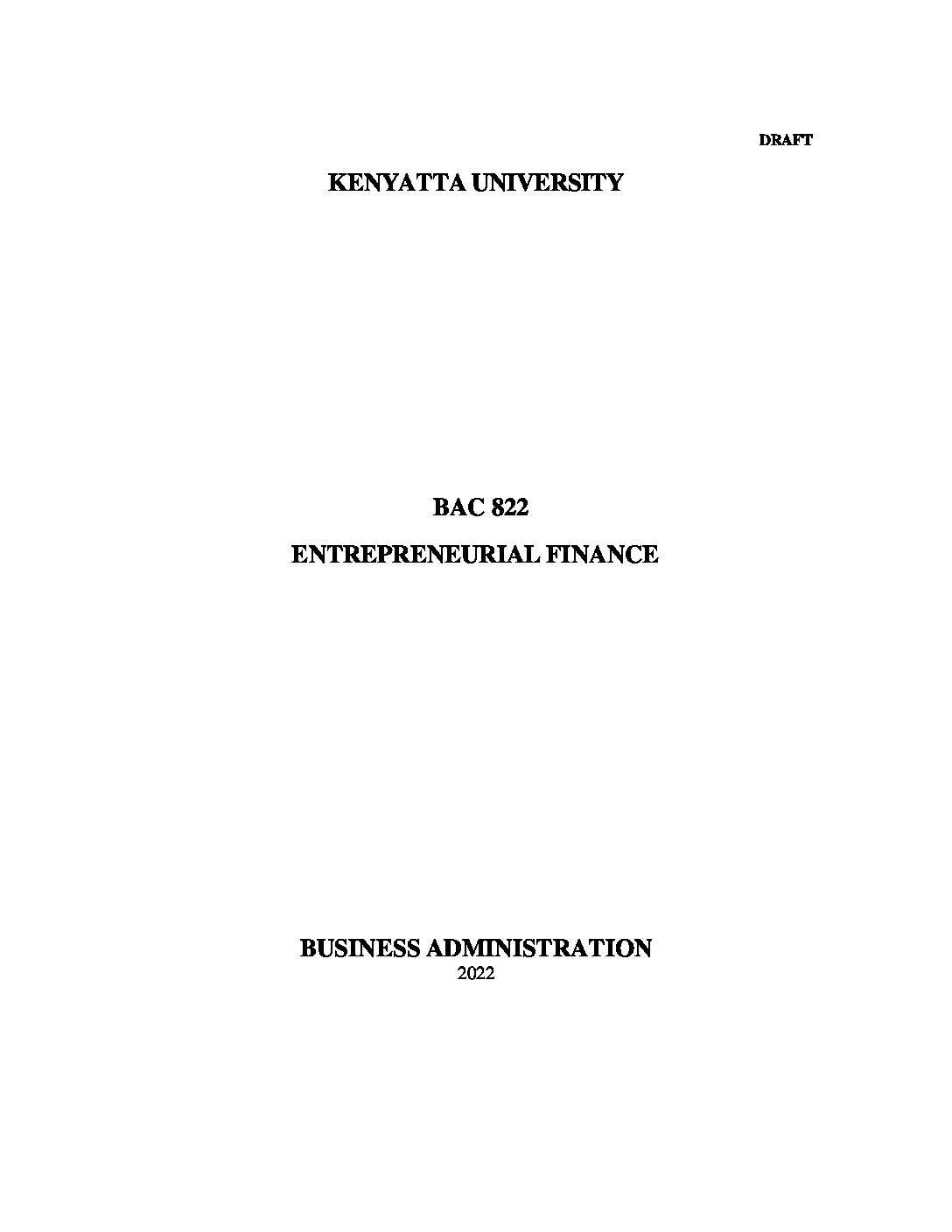Institution: Kenyatta University
Course: Master of Business Administration
Pages:201
File:pdf
Course Outline
1. The Theoretical Framework of Accounting.
Definition
Advantages of theoretical framework
Disadvantages of theoretical framework
Structure of typical theoretical framework of accounting
Issues dealt with by theoretical framework
2. Accounting Concepts
Fundamental accounting concepts
Other accounting concepts/principles
Accounting bases
Accounting policies
3. Accounting Standards (IFRs)
Introduction
Development of Accounting standards
Purpose of accounting standards
Disadvantages of Accounting standards
International harmonization
Disadvantages of harmonization and Barriers to harmonization of accounting standards.
Regulation of Accounting profession in Kenya
4. Accounting Cycle
Journal entries
Ledger accounts
Trial balance
Preparation of financial statements including cash flow statement.
Financial analysis and basic accounting ratios
5. Disposal and valuation of tangible and intangible assets
Difference of tangible and intangible assets
Value of resources after trade-in
Gain and losses on disposal
Contingent assets and Contingent liabilities
6. Social Responsibility Accounting.
Nature and scope of social responsibility accounting
Aspects of corporate social responsibility accounting
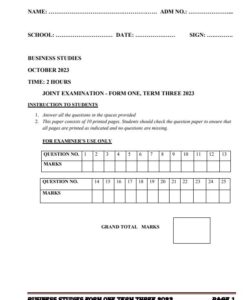 2023 Form 1 Business Studies End of Term 3 Examination With Marking Schemes
1 × KSh40.00
2023 Form 1 Business Studies End of Term 3 Examination With Marking Schemes
1 × KSh40.00 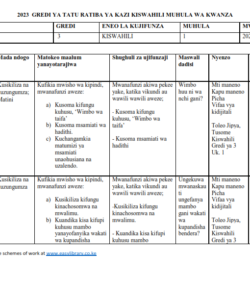 2023 GREDI 3 TUSOME KISWAHILI MAAZIMIO YA KAZI - MUHULA WA KWANZA
1 × KSh50.00
2023 GREDI 3 TUSOME KISWAHILI MAAZIMIO YA KAZI - MUHULA WA KWANZA
1 × KSh50.00 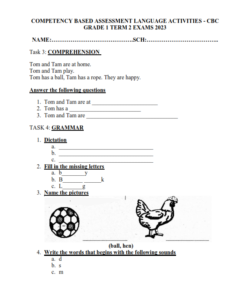 2023 Grade 1 End of Term 2 Examination With Marking Schemes -Set 2
1 × KSh100.00
2023 Grade 1 End of Term 2 Examination With Marking Schemes -Set 2
1 × KSh100.00  GRADE 7 LIFE SKILLS TOPICAL REVISION BOOKLET
1 × KSh100.00
GRADE 7 LIFE SKILLS TOPICAL REVISION BOOKLET
1 × KSh100.00  2023 PRE-PRIMARY 2 KLB IRE ACTIVITIES SCHEMES OF WORK - TERM 1
1 × KSh100.00
2023 PRE-PRIMARY 2 KLB IRE ACTIVITIES SCHEMES OF WORK - TERM 1
1 × KSh100.00 

